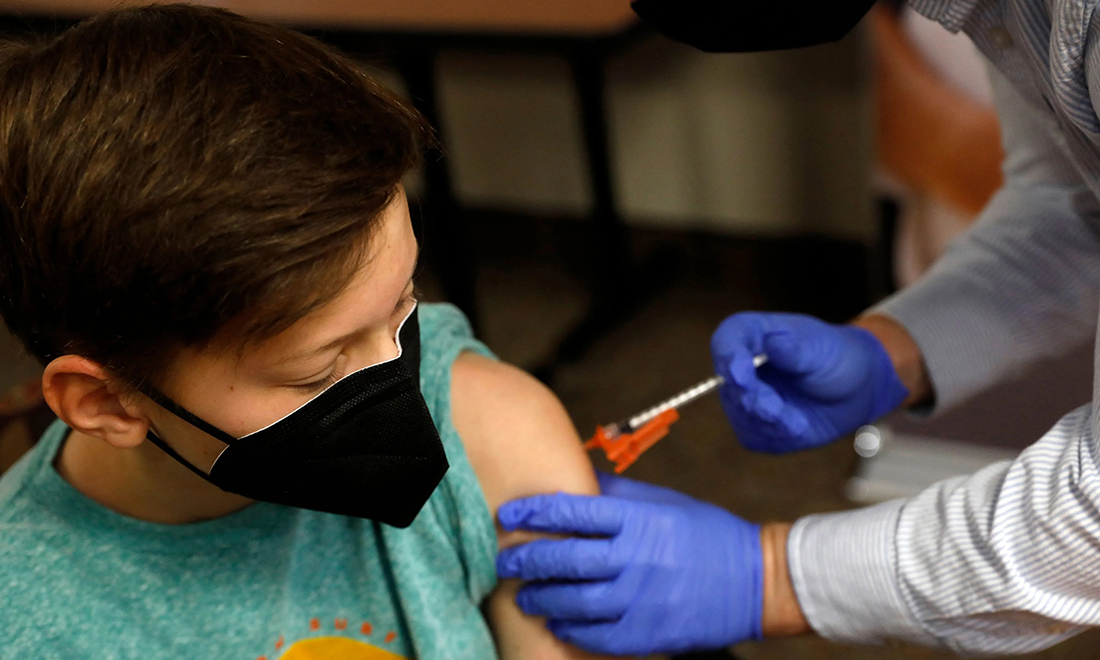
Moderna起訴輝瑞(Pfizer)及其合作伙伴BioNTech專利侵權(quán),,稱這兩家公司開發(fā)新冠疫苗時(shí)抄襲了其技術(shù)。
Moderna于8月26日在美國和德國提起訴訟,,稱其相信輝瑞-BioNTech疫苗侵犯了公司的信使核糖核酸(mRNA)專利技術(shù),。Moderna早在新冠疫情爆發(fā)前幾年就已經(jīng)開始開發(fā)該項(xiàng)技術(shù)。
Moderna指責(zé)輝瑞和BioNTech未經(jīng)許可抄襲其“突破性技術(shù)”,,用于開發(fā)新冠疫苗,。
Moderna在8月26日的一份新聞稿中稱:“輝瑞和BioNTech對四種不同候選疫苗進(jìn)行了臨床測試,其中有疫苗方案本可以避開Moderna的創(chuàng)新途徑?!?/p>
“然而,,輝瑞和BioNTech最終決定繼續(xù)開發(fā)的疫苗,采用了與[Moderna疫苗]Spikevax完全相同的mRNA化學(xué)改性技術(shù),?!?/p>
Moderna表示,其科學(xué)家早在2010年就開始研究該項(xiàng)技術(shù),,并聲稱其在五年后最早對該技術(shù)進(jìn)行了人體試驗(yàn),。
“同樣,盡管有許多不同的選擇,,輝瑞和BioNTech卻復(fù)制了Moderna的方法,,在冠狀病毒脂質(zhì)納米顆粒配方中編碼全長刺突蛋白?!痹摴狙a(bǔ)充道,。“在新冠病毒首次出現(xiàn)的前幾年,,Moderna的科學(xué)家發(fā)明了一種導(dǎo)致中東呼吸綜合征(MERS)的冠狀病毒疫苗,,開發(fā)了這種方法?!?/p>
輝瑞被訴訟“震驚”
輝瑞的一位發(fā)言人在8月26日告訴《財(cái)富》雜志,,Moderna的訴訟出乎意料。
該發(fā)言人說:“輝瑞-BioNTech尚未全面審查該投訴,,但鑒于我們的新冠疫苗是基于BioNTech的專有mRNA技術(shù),,由BioNTech和輝瑞共同開發(fā)的,因此我們對訴訟感到驚訝,?!?/p>
“我們對支持輝瑞- BioNTech疫苗的知識產(chǎn)權(quán)仍然具有信心,并將對訴訟指控進(jìn)行有力辯護(hù),?!?/p>
Moderna的首席執(zhí)行官斯特凡內(nèi)·班塞爾于8月26日表示,該公司正在提起訴訟,,“以保護(hù)我們在新冠疫情爆發(fā)之前的十年中率先開發(fā),、投資數(shù)十億美元?jiǎng)?chuàng)建并獲得專利的創(chuàng)新mRNA技術(shù)平臺,?!?/p>
他補(bǔ)充說,Moderna還利用其mRNA技術(shù)開發(fā)治療艾滋病毒等傳染病以及癌癥等非傳染性疾病的藥物,。
疫苗專利
2020年10月,,在臨床試驗(yàn)之外使用任何新冠疫苗之前,Moderna承諾,,在疫情持續(xù)期間,,不會強(qiáng)制執(zhí)行其與新冠肺炎相關(guān)的專利,。
該公司在今年3月改變了方針,認(rèn)為疫情已經(jīng)進(jìn)入“新階段”,,疫苗供應(yīng)不再在世界許多地區(qū)造成可獲得性問題,。
當(dāng)時(shí),Moderna稱,,它永遠(yuǎn)不會在92個(gè)中低收入國家實(shí)施專利,,但它希望其他公司在其他市場“尊重其知識產(chǎn)權(quán)”。它補(bǔ)充說,,如果競爭對手的疫苗生產(chǎn)商提出要求,,它愿意授予“商業(yè)上合理的”許可證以使用其技術(shù)。
Moderna在8月26日對輝瑞和BioNTech提起訴訟時(shí)指出,,起訴的目的并非迫使它們的疫苗下市,,或者尋求司法禁令阻止疫苗的未來銷售。
Moderna還表示,,公司尋求的損害賠償與輝瑞疫苗在獲得專利承諾豁免的92個(gè)國家的銷售無關(guān),,也不會針對美國政府應(yīng)該負(fù)責(zé)的情況尋求任何損害賠償。
Moderna的主張針對的是在2022年3月8日之后銷售的疫苗,,該公司當(dāng)天調(diào)整了新冠疫苗專利政策,。
Moderna的代表并未立即答復(fù)《財(cái)富》雜志關(guān)于賠償金額的問題。
競爭激烈的領(lǐng)域
對mRNA疫苗的研究已經(jīng)持續(xù)了數(shù)十年,,但這項(xiàng)技術(shù)隨著新冠疫苗的上市才開始被公開使用,。
Moderna和輝瑞-BioNTech疫苗都使用mRNA技術(shù)激發(fā)人體的免疫反應(yīng),從而形成對病毒的保護(hù)力,。
在2020年開展的三期臨床試驗(yàn)中,,這兩款疫苗的有效率均為約95%。然而,,這兩款疫苗的設(shè)計(jì)都是針對原始病毒株,,對于之后出現(xiàn)的各種變異毒株的防護(hù)力較弱。
所有公司都在努力開發(fā)特別針對BA.4和BA.5奧密克戎亞變異毒株的疫苗,。目前這兩種亞變異毒株是美國的主要病毒株,。
去年,輝瑞的新冠疫苗銷售額達(dá)到370億美元,。
Moderna于2021年在全球共交付8.07億劑疫苗,,價(jià)值177億美元。
輝瑞-BioNTech疫苗在2020年12月被美國食品與藥品管理局(U.S. FDA)授予緊急使用授權(quán)(Emergency Use Authorization),。監(jiān)管部門在一周后也授予Moderna疫苗緊急使用授權(quán),。
據(jù)Our World in Data統(tǒng)計(jì),在美國,輝瑞-BioNTech新冠疫苗的應(yīng)用最廣泛,,其次是Moderna疫苗,。
但《紐約時(shí)報(bào)》(New York Times)的調(diào)查發(fā)現(xiàn),在全球使用最廣泛的是牛津-阿斯利康(Oxford-AstraZeneca)疫苗,,這款疫苗并未使用mRNA技術(shù),。《紐約時(shí)報(bào)》稱,,排在第二位的是輝瑞-BioNTech疫苗,,其次是Moderna疫苗。(財(cái)富中文網(wǎng))
譯者:劉進(jìn)龍
審校:汪皓
Moderna起訴輝瑞(Pfizer)及其合作伙伴BioNTech專利侵權(quán),,稱這兩家公司開發(fā)新冠疫苗時(shí)抄襲了其技術(shù),。
Moderna于8月26日在美國和德國提起訴訟,稱其相信輝瑞-BioNTech疫苗侵犯了公司的信使核糖核酸(mRNA)專利技術(shù),。Moderna早在新冠疫情爆發(fā)前幾年就已經(jīng)開始開發(fā)該項(xiàng)技術(shù),。
Moderna指責(zé)輝瑞和BioNTech未經(jīng)許可抄襲其“突破性技術(shù)”,用于開發(fā)新冠疫苗,。
Moderna在8月26日的一份新聞稿中稱:“輝瑞和BioNTech對四種不同候選疫苗進(jìn)行了臨床測試,,其中有疫苗方案本可以避開Moderna的創(chuàng)新途徑?!?/p>
“然而,,輝瑞和BioNTech最終決定繼續(xù)開發(fā)的疫苗,采用了與[Moderna疫苗]Spikevax完全相同的mRNA化學(xué)改性技術(shù),?!?/p>
Moderna表示,其科學(xué)家早在2010年就開始研究該項(xiàng)技術(shù),,并聲稱其在五年后最早對該技術(shù)進(jìn)行了人體試驗(yàn),。
“同樣,盡管有許多不同的選擇,,輝瑞和BioNTech卻復(fù)制了Moderna的方法,,在冠狀病毒脂質(zhì)納米顆粒配方中編碼全長刺突蛋白?!痹摴狙a(bǔ)充道,。“在新冠病毒首次出現(xiàn)的前幾年,,Moderna的科學(xué)家發(fā)明了一種導(dǎo)致中東呼吸綜合征(MERS)的冠狀病毒疫苗,,開發(fā)了這種方法?!?/p>
輝瑞被訴訟“震驚”
輝瑞的一位發(fā)言人在8月26日告訴《財(cái)富》雜志,,Moderna的訴訟出乎意料。
該發(fā)言人說:“輝瑞-BioNTech尚未全面審查該投訴,,但鑒于我們的新冠疫苗是基于BioNTech的專有mRNA技術(shù),,由BioNTech和輝瑞共同開發(fā)的,因此我們對訴訟感到驚訝,?!?/p>
“我們對支持輝瑞- BioNTech疫苗的知識產(chǎn)權(quán)仍然具有信心,并將對訴訟指控進(jìn)行有力辯護(hù),?!?/p>
Moderna的首席執(zhí)行官斯特凡內(nèi)·班塞爾于8月26日表示,該公司正在提起訴訟,,“以保護(hù)我們在新冠疫情爆發(fā)之前的十年中率先開發(fā),、投資數(shù)十億美元?jiǎng)?chuàng)建并獲得專利的創(chuàng)新mRNA技術(shù)平臺?!?/p>
他補(bǔ)充說,,Moderna還利用其mRNA技術(shù)開發(fā)治療艾滋病毒等傳染病以及癌癥等非傳染性疾病的藥物。
疫苗專利
2020年10月,,在臨床試驗(yàn)之外使用任何新冠疫苗之前,,Moderna承諾,在疫情持續(xù)期間,,不會強(qiáng)制執(zhí)行其與新冠肺炎相關(guān)的專利,。
該公司在今年3月改變了方針,認(rèn)為疫情已經(jīng)進(jìn)入“新階段”,,疫苗供應(yīng)不再在世界許多地區(qū)造成可獲得性問題,。
當(dāng)時(shí),Moderna稱,,它永遠(yuǎn)不會在92個(gè)中低收入國家實(shí)施專利,,但它希望其他公司在其他市場“尊重其知識產(chǎn)權(quán)”。它補(bǔ)充說,,如果競爭對手的疫苗生產(chǎn)商提出要求,,它愿意授予“商業(yè)上合理的”許可證以使用其技術(shù)。
Moderna在8月26日對輝瑞和BioNTech提起訴訟時(shí)指出,,起訴的目的并非迫使它們的疫苗下市,,或者尋求司法禁令阻止疫苗的未來銷售。
Moderna還表示,,公司尋求的損害賠償與輝瑞疫苗在獲得專利承諾豁免的92個(gè)國家的銷售無關(guān),,也不會針對美國政府應(yīng)該負(fù)責(zé)的情況尋求任何損害賠償。
Moderna的主張針對的是在2022年3月8日之后銷售的疫苗,,該公司當(dāng)天調(diào)整了新冠疫苗專利政策,。
Moderna的代表并未立即答復(fù)《財(cái)富》雜志關(guān)于賠償金額的問題,。
競爭激烈的領(lǐng)域
對mRNA疫苗的研究已經(jīng)持續(xù)了數(shù)十年,但這項(xiàng)技術(shù)隨著新冠疫苗的上市才開始被公開使用,。
Moderna和輝瑞-BioNTech疫苗都使用mRNA技術(shù)激發(fā)人體的免疫反應(yīng),,從而形成對病毒的保護(hù)力。
在2020年開展的三期臨床試驗(yàn)中,,這兩款疫苗的有效率均為約95%,。然而,這兩款疫苗的設(shè)計(jì)都是針對原始病毒株,,對于之后出現(xiàn)的各種變異毒株的防護(hù)力較弱,。
所有公司都在努力開發(fā)特別針對BA.4和BA.5奧密克戎亞變異毒株的疫苗。目前這兩種亞變異毒株是美國的主要病毒株,。
去年,,輝瑞的新冠疫苗銷售額達(dá)到370億美元。
Moderna于2021年在全球共交付8.07億劑疫苗,,價(jià)值177億美元,。
輝瑞-BioNTech疫苗在2020年12月被美國食品與藥品管理局(U.S. FDA)授予緊急使用授權(quán)(Emergency Use Authorization)。監(jiān)管部門在一周后也授予Moderna疫苗緊急使用授權(quán),。
據(jù)Our World in Data統(tǒng)計(jì),,在美國,輝瑞-BioNTech新冠疫苗的應(yīng)用最廣泛,,其次是Moderna疫苗,。
但《紐約時(shí)報(bào)》(New York Times)的調(diào)查發(fā)現(xiàn),在全球使用最廣泛的是牛津-阿斯利康(Oxford-AstraZeneca)疫苗,,這款疫苗并未使用mRNA技術(shù),。《紐約時(shí)報(bào)》稱,,排在第二位的是輝瑞-BioNTech疫苗,,其次是Moderna疫苗。(財(cái)富中文網(wǎng))
譯者:劉進(jìn)龍
審校:汪皓
Moderna is suing Pfizer and its partner BioNTech for patent infringement, claiming that the companies copied its technology to develop their COVID-19 vaccine.
Filing lawsuits in both the U.S. and Germany on August 26, Moderna said it believed the Pfizer-BioNTech vaccine violated patented mRNA technology that it had begun developing years before the pandemic took hold.
Moderna accused Pfizer and BioNTech of copying its “groundbreaking technology” without permission to develop their own vaccine against the coronavirus.
“Pfizer and BioNTech took four different vaccine candidates into clinical testing, which included options that would have steered clear of Moderna’s innovative path,” the company alleged in a press release on August 26.
“Pfizer and BioNTech, however, ultimately decided to proceed with a vaccine that has the same exact mRNA chemical modification as [Moderna vaccine] Spikevax.”
Moderna said its scientists began working on the technology in 2010, and claimed it became the first company to test the tech in human trials five years later.
“Again, despite having many different options, Pfizer and BioNTech copied Moderna’s approach to encode for the full-length spike protein in a lipid nanoparticle formulation for a coronavirus,” the firm added. “Moderna scientists developed this approach when they created a vaccine for the coronavirus that causes Middle East respiratory syndrome (MERS) years before COVID-19 first emerged.”
Pfizer “surprised” by lawsuit
A spokesperson for Pfizer told Fortune on August 26 that Moderna’s lawsuit had been unexpected.
“Pfizer-BioNTech has not yet fully reviewed the complaint, but we are surprised by the litigation given the Pfizer-BioNTech COVID-19 vaccine was based on BioNTech’s proprietary mRNA technology and developed by both BioNTech and Pfizer,” the spokesperson said.
“We remain confident in our intellectual property supporting the Pfizer-BioNTech vaccine and will vigorously defend against the allegations of the lawsuit.”
Moderna CEO Stéphane Bancel said on August 26 that the company was filing the lawsuits “to protect the innovative mRNA technology platform that we pioneered, invested billions of dollars in creating, and patented during the decade preceding the COVID-19 pandemic.”
He added that Moderna was also using its mRNA technology to develop medicines for infectious diseases like HIV as well as noncommunicable diseases like cancer.
Vaccine patents
In October 2020—before any COVID vaccines were being used outside clinical trials—Moderna pledged not to enforce its COVID-19–related patents while the pandemic endured.
The company changed course in March of this year, arguing that the pandemic had entered a “new phase” where vaccine supply was no longer creating accessibility issues in many parts of the world.
At the time, Moderna said it would never enforce patents in 92 low- and middle-income countries, but that it expected other companies to “respect its intellectual property rights” in other markets. It added that it was willing to grant “commercially reasonable” licenses to use its technology if rival vaccine makers requested them.
As it filed its lawsuits against Pfizer and BioNTech on August 26, Moderna said it was neither seeking to remove their COVID vaccine from the market nor seeking an injunction to prevent its future sale.
The company also said the damages it sought were not related to sales to the 92 countries exempt from its patent pledge, and added that it would not seek any damages where the U.S. government would be liable.
All of the damages Moderna sought would be for sales that occurred after March 8, 2022, when the company changed its COVID vaccine patent policy.
Representatives for Moderna were not immediately available to answer Fortune’s questions about how much the company is seeking in damages.
Competitive space
Messenger RNA (mRNA) vaccines have been studied for decades—but the technology was only rolled out for public use with the launch of COVID-19 vaccines.
The Moderna and the Pfizer-BioNTech vaccines use mRNA technology to trigger an immune response that protects recipients against the virus.
Both vaccines had efficacy rates of around 95% in Phase III clinical trials carried out in 2020. However, both were designed to combat the original strain of the virus, and are less effective against variants that have emerged since.
All of the companies are working to develop vaccines specifically targeted at the BA.4 and BA.5 Omicron subvariants, which are the dominant strains of the virus in the United States.
Last year, Pfizer made $37 billion from sales of its COVID-19 vaccine.
Moderna sold $17.7 billion worth of COVID vaccines globally in 2021, delivering 807 million vaccines.
The Pfizer-BioNTech vaccine was granted Emergency Use Authorization by the U.S. FDA in December 2020. Regulators granted Moderna’s vaccine emergency approval a week later.
In the U.S., the Pfizer-BioNTech vaccine is the most widely used COVID-19 shot, according to Our World in Data, with Moderna coming in second place.
Globally, however, the Oxford-AstraZeneca vaccine—which does not use mRNA technology—is the most widely used, according to an investigation by the New York Times. Pfizer-BioNTech is the second most widely used vaccine worldwide, according to the Times, followed by Moderna.






